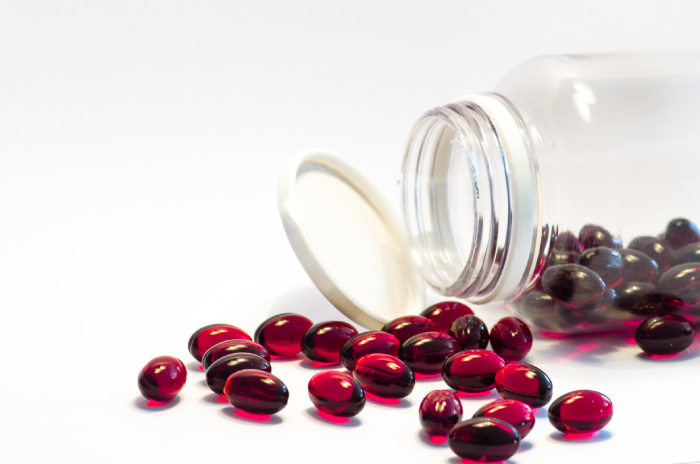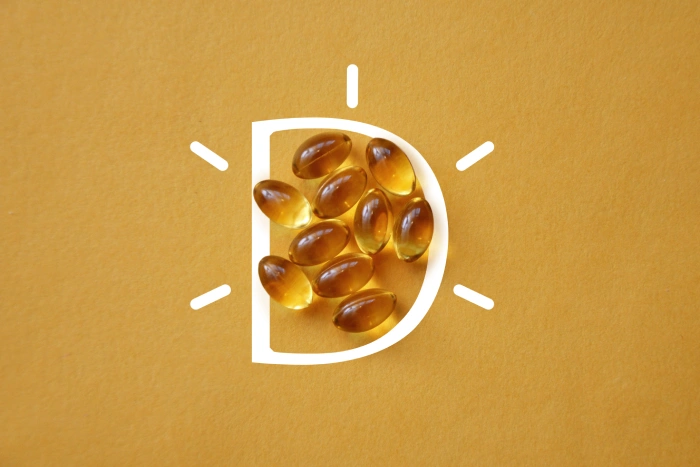Hey there, health enthusiasts! Ready to paint the town red? Well, hold onto your smoothie straws because we’re about to dive into the world of the best lycopene supplement – nature’s very own crimson crusader! ðŸ…💪
You’ve probably heard whispers about the best lycopene supplement or seen lycopene tablets lining the shelves of your local health store. But what’s all the fuss about? Buckle up, buttercup, because we’re about to take a juicy journey through the land of lycopene-rich foods and discover why this ruby-red rockstar is making waves in the wellness world!
What the Heck is Lycopene Anyway?
Alright, picture this: You’re at a superhero convention, and among all the cape-wearing, muscle-bound characters, there’s this unassuming red dude chillin’ in the corner. That’s lycopene for ya! It’s the cool, quiet type that packs a serious punch when it comes to your health.
Lycopene is a carotenoid – fancy talk for a natural pigment that gives certain fruits and veggies their red color. It’s like nature’s own paintbrush, coloring tomatoes, watermelons, and pink grapefruits. But unlike that questionable red dye in your favorite candy, lycopene isn’t just about looks – it’s got some serious health benefits up its sleeve!
The Lycopene Lineup: Where to Find This Red Ranger

Now, before you start frantically Googling “what foods contain lycopene,” let me save you some time. Here’s the scoop on where to find this crimson crusader:
- Tomatoes: The OG lycopene superstar. Whether fresh, canned, or sauced up, tomatoes are lycopene legends.
- Watermelon: Who knew this summer favorite was packing such a healthy punch?
- Pink Grapefruit: Breakfast just got a whole lot more interesting!
- Papaya: Tropical goodness meets lycopene greatness.
- Guava: This exotic fruit is a lycopene powerhouse.
But let’s be real – unless you’re planning on face-planting into a tomato field daily (no judgment here), you might be wondering about the best lycopene supplement. Don’t worry, we’ll get there! But first, let’s talk about why you should care about this red wonder in the first place.
Lycopene Benefits: More Than Just a Pretty Face (or Fruit)
Okay, so lycopene makes things red. Big whoop, right? Wrong! This little pigment is like the Swiss Army knife of nutrients. Let’s break down some of its superpowers:
- Prostate Health: Gentlemen, listen up! Lycopene benefits for prostate are no joke. Studies suggest that a lycopene-rich diet might help keep your prostate happy and healthy. So, next time you’re debating between fries or tomato salad, think of your future self thanking you.
- Skin Savior: Move over, fancy creams! Lycopene benefits for skin are the real deal. It’s like nature’s own sunscreen, helping protect your skin from harmful UV rays. But don’t toss your SPF just yet – think of lycopene as your skin’s sidekick, not its replacement.
- Heart Helper: Lycopene might just be your ticker’s new BFF. Some studies suggest it could help keep your heart healthy by reducing bad cholesterol. It’s like a tiny red traffic cop for your arteries!
- Cancer Fighter: While we’re not saying lycopene is a miracle cure, research suggests it might help reduce the risk of certain cancers. It’s like having a microscopic bodyguard in your bloodstream!
- Eye Candy: And we’re not just talking about its pretty color! Lycopene benefits for eyes are pretty impressive. It might help protect against age-related eye diseases. So, you can keep your eagle eyes well into your golden years!
The Great Lycopene Debate: Food vs. Supplements
Now, I know what you’re thinking. “Sure, lycopene sounds great, but ain’t nobody got time to eat a truckload of tomatoes every day!” Fair point, my friend. This is where the great food vs. supplement debate comes in.
On one hand, lycopene-rich foods offer more than just lycopene. You’re getting a whole package deal of vitamins, minerals, and fiber. It’s like nature’s own multivitamin!
On the other hand, the best lycopene supplement can provide a concentrated dose without the need to stock up on produce like you’re preparing for the tomato apocalypse. Plus, let’s be honest – not everyone’s a fan of grapefruit for breakfast, lunch, and dinner.
So, what’s the verdict? Well, as with most things in life, it’s all about balance. Aiming for a diet rich in lycopene-packed foods is always a good idea. But if you’re looking to boost your intake or have specific health goals in mind, a high-quality lycopene supplement might be worth considering.
The Best Lycopene Supplement Lowdown

If you’re thinking about jumping on the supplement bandwagon, here’s what you need to know about choosing the best lycopene supplement:
- Dosage Matters: When it comes to lycopene, more isn’t always better. A typical lycopene dosage for prostate health ranges from 6 to 30 mg per day. Lycopene 500 mg might sound impressive, but it’s usually overkill.
- Form Follows Function: Lycopene tablets are common, but softgel capsules might offer better absorption. Some even come as lycopene powder for those who prefer to mix it into smoothies or shakes.
- Purity is Key: Look for supplements that are free from unnecessary fillers or additives. A clean ingredient list is a happy ingredient list!
- Combo Power: Some supplements pair lycopene with other powerhouse nutrients. For example, astaxanthin and lycopene or lutein and lycopene combos are becoming popular for their potential synergistic effects.
- Quality Counts: Always opt for reputable brands that undergo third-party testing. Your body deserves the best, after all!
Lycopene Dosage: Finding Your Sweet Spot
Now, before you start popping lycopene tablets like they’re candy, let’s talk dosage. As with any supplement, it’s not a one-size-fits-all situation.
For general health maintenance, a daily dose of 6-15 mg of lycopene is typically recommended. However, if you’re targeting specific health concerns, the dosage might vary:
– Lycopene dosage for prostate health: Studies have used doses ranging from 15-30 mg per day.
– Lycopene dosage for erectile dysfunction: Some research has explored doses of 25 mg daily.
– Lycopene for skin: Doses of 10-16 mg per day have been studied for potential skin benefits.
Remember, these are just guidelines. It’s always best to consult with a healthcare professional before starting any new supplement regimen. They can help you determine the best lycopene supplement and dosage based on your individual needs and health status.
Lycopene: Not Just a One-Trick Pony
While lycopene supplements are great for getting a concentrated dose, let’s not forget about the OG source – food! Incorporating lycopene-rich foods into your diet isn’t just healthy; it can be downright delicious. Here are some creative ways to boost your lycopene intake:
- Tomato Tango: Whip up a batch of homemade tomato sauce. It’s not just for pasta – use it as a base for soups, stews, or even as a pizza topping.
- Watermelon Wonder: Blend watermelon chunks with mint for a refreshing summer drink. Or get fancy and make a watermelon and feta salad.
- Grapefruit Groove: Start your day with half a grapefruit, or add grapefruit segments to your salads for a zesty kick.
- Papaya Paradise: Toss some papaya chunks into your morning smoothie or yogurt bowl.
- Guava Goodness: Slice up some guava as a snack, or add it to your fruit salads for an exotic twist.
Remember, cooking tomatoes actually increases their lycopene content. So don’t be afraid to heat things up in the kitchen!
The Lycopene Lifestyle: More Than Just a Supplement
Now, before you run off to raid the supplement aisle or start a tomato farm in your backyard, let’s talk about the bigger picture. While the best lycopene supplement can be a great addition to your health regimen, it’s not a magic bullet. It’s part of a healthy lifestyle that includes a balanced diet, regular exercise, and good sleep habits.
Here are some tips to maximize your lycopene intake and overall health:
- Mix and Match: Combine lycopene-rich foods with healthy fats like olive oil or avocado. This can help your body absorb lycopene better.
- Go for Variety: While tomatoes are the lycopene superstars, don’t forget about other sources like watermelon, pink grapefruit, and papaya. Variety is the spice of life, after all!
- Cook It Up: Remember, cooked tomatoes actually have more bioavailable lycopene than raw ones. So go ahead and simmer that pasta sauce!
- Supplement Smartly: If you’re opting for the best lycopene supplement, make sure it fits into your overall health plan. It’s not about replacing a healthy diet, but enhancing it.
- Stay Consistent: Whether you’re getting your lycopene from food or the best lycopene supplement, consistency is key. Make it a daily habit for the best results.
The Science Behind the Scarlet: Lycopene Research

Now, let’s get a bit nerdy for a moment. The best lycopene supplement isn’t just a trend – there’s some solid science backing it up. Here’s a quick rundown of some interesting research:
- Prostate Power: A study published in the Journal of the National Cancer Institute found that men who consumed more lycopene-rich foods had a lower risk of prostate cancer. This is why lycopene supplements for prostate health are becoming increasingly popular.
- Heart Health Hero: Research published in the American Journal of Clinical Nutrition suggests that higher lycopene intake is associated with a lower risk of cardiovascular disease.
- Skin Savior: A study in the British Journal of Dermatology found that lycopene, along with other carotenoids, can help protect against UV-induced skin damage. This is why you’re seeing more products touting lycopene uses for skin.
- Eye Opener: Research in the Archives of Ophthalmology suggests that a diet rich in lycopene may help reduce the risk of cataracts and age-related macular degeneration.
- Bone Booster: Emerging research is exploring the potential of lycopene for bone health. A study in the Journal of Bone and Mineral Research found that lycopene might help prevent bone loss in postmenopausal women.
How to Choose the Best Lycopene Supplement
With so many options out there, choosing the best lycopene supplement can feel like finding a needle in a tomato stack. Here are some tips to help you make the right choice:
- Check the Source: Look for supplements derived from natural sources like tomatoes. Some of the best lycopene supplements use advanced extraction methods to ensure high-quality lycopene.
- Dosage Matters: Remember, more isn’t always better. Look for supplements that provide a reasonable dose, typically between 6-30 mg per day.
- Form Factor: Lycopene tablets are common, but softgel capsules might offer better absorption. Some people prefer lycopene powder for flexibility in how they consume it.
- Purity is Key: Check the ingredient list. The best lycopene supplement should have minimal additives and no unnecessary fillers.
- Third-Party Testing: Look for brands that undergo third-party testing to ensure quality and purity.
- Combos Can Be Cool: Some of the best lycopene supplements combine lycopene with other beneficial nutrients. For example, astaxanthin and lycopene or lutein and lycopene are popular combinations.
- Consider Your Goals: Are you looking for lycopene supplements for prostate health? Or maybe you’re more interested in lycopene benefits for skin? Your specific health goals can help guide your choice.
Lycopene Supplement Side Effects: What You Need to Know
While lycopene is generally considered safe, it’s always important to be aware of potential side effects. Here’s what you should know:
- Lycopenemia: Don’t panic! This isn’t as scary as it sounds. It’s just a harmless condition where your skin can take on a slightly orange hue from consuming large amounts of lycopene. It’s reversible and not harmful, but maybe not the look you’re going for!
- Digestive Issues: Some people might experience mild digestive discomfort when taking high doses of lycopene supplements.
- Drug Interactions: Lycopene might interact with certain medications, particularly blood thinners. Always consult with your healthcare provider before starting any new supplement regimen.
- Allergies: While rare, some people might be allergic to lycopene or other ingredients in lycopene supplements.
Remember, these side effects are generally rare and mild. Most people can enjoy the benefits of lycopene, whether from food sources or the best lycopene supplement, without any issues.
Lycopene: Beyond the Supplement
While we’ve been focusing a lot on the best lycopene supplement options, let’s not forget that lycopene is more than just a pill or powder. It’s a nutrient that’s deeply integrated into many delicious and healthy foods. Here are some fun ways to incorporate more lycopene into your life:
- Tomato Tasting Party: Host a tomato tasting party with different varieties of tomatoes. Cherry, beefsteak, heirloom – the options are endless!
- Watermelon Workout Recovery: Try a watermelon smoothie after your workout. It’s hydrating, delicious, and packed with lycopene.
- Grapefruit Breakfast Bowl: Start your day with a grapefruit breakfast bowl. Add some Greek yogurt and a drizzle of honey for a perfect morning meal.
- Guava Salsa: Spice up your chips and dip game with a homemade guava salsa. It’s a unique twist on a classic snack.
- Papaya Boat: Create a papaya boat filled with Greek yogurt and granola for a lycopene-rich dessert or snack.
Remember, while the best lycopene supplement can be a great addition to your health regimen, there’s nothing quite like getting nutrients from whole foods. Plus, it’s a lot more fun!
The Future of Lycopene Research
As we wrap up our deep dive into the world of lycopene, it’s exciting to think about what the future might hold. Research on lycopene is ongoing, and scientists are continually discovering new potential benefits. Here are some areas to watch:
- Lycopene and Brain Health: Emerging research is exploring the potential neuroprotective effects of lycopene. Could the best lycopene supplement of the future be marketed for brain health?
- Lycopene and Fertility: Some studies are investigating the role of lycopene in male fertility. This could open up new avenues for lycopene supplementation.
- Lycopene and Exercise Performance: Could lycopene help with exercise recovery and performance? Some researchers are looking into this possibility.
- New Extraction Methods: As technology advances, we might see new methods for extracting and concentrating lycopene, potentially leading to even more effective lycopene supplements.
- Personalized Supplementation: With the rise of personalized medicine, we might see recommendations for lycopene intake tailored to individual genetic profiles and health needs.
Conclusion: The Best Lycopene Supplement for You
So, what’s the bottom line? Is the best lycopene supplement right for you? As with most things in health and nutrition, the answer is: it depends.
If you’re eating a varied diet rich in fruits and vegetables, particularly tomatoes and other red produce, you might be getting plenty of lycopene already. In this case, a supplement might not be necessary.
However, if you’re looking to target specific health concerns, like prostate health or skin protection, or if you struggle to get enough lycopene-rich foods in your diet, a high-quality lycopene supplement could be beneficial.
Remember, the “best” lycopene supplement is the one that fits your individual needs, lifestyle, and health goals. It’s always a good idea to consult with a healthcare professional before starting any new supplement regimen.
Whether you choose to boost your lycopene intake through diet, supplements, or a combination of both, you’re taking a positive step towards better health. So go ahead, paint your plate (and your health) red with the power of lycopene!


